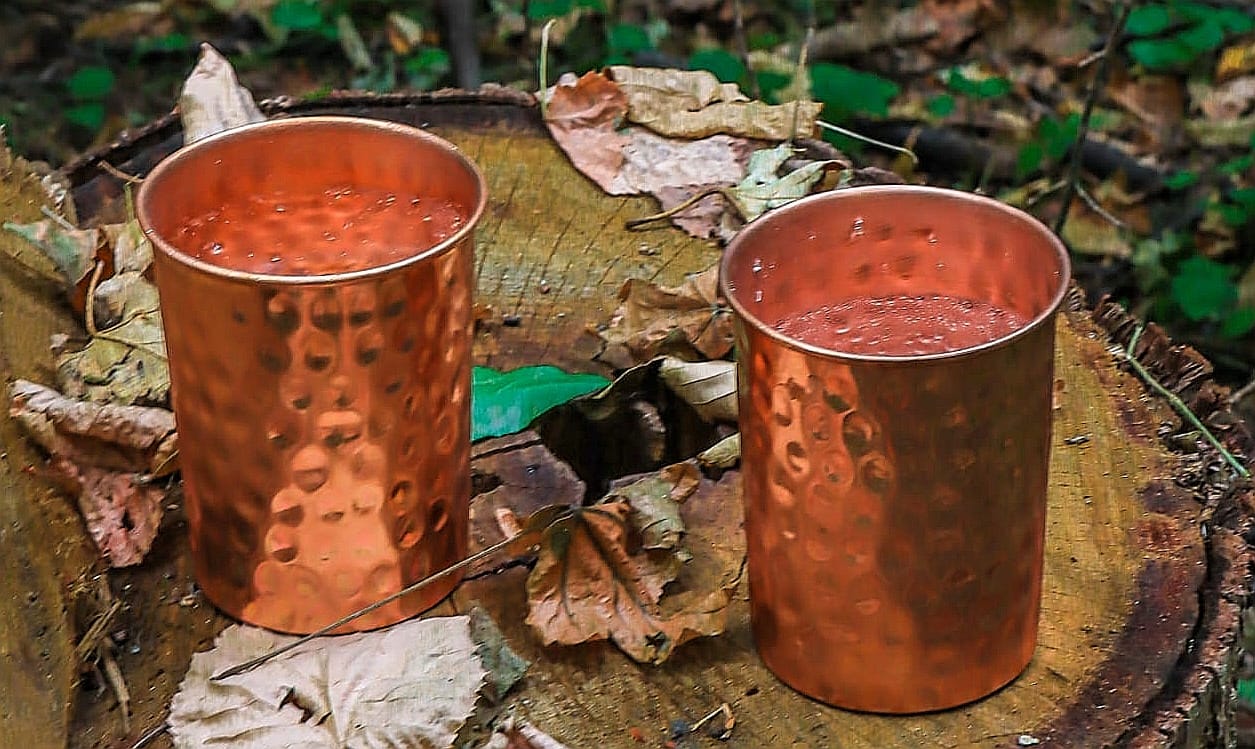Did you know that recent studies shows that drinking water stored in copper bottles is a safe and beneficial practice? In this blog post, we will summarize these studies and explain how you can benefit from using a copper water container. Let's begin!
While the concept of storing water in a copper water bottle or other copper container appeared centuries ago and has its origins in Ayurvedic principles, the practice is gaining increasing attention from the scientific community. In fact, several recent studies have confirmed that drinking water stored in a copper vessel is a safe and beneficial healthy practice. In this blog post, we will summarize the results of three recent scientific studies on the use of copper water containers, as well as a report from the World Health Organization.
In a recent study published in the Journal of Health, Population and Nutrition, scientists studied the effect of storing water in a copper container on microbially contaminated drinking water, including harmful bacteria such as E.coli. and salmonella. Water contaminated with this bacterium was stored in copper containers for 16 hours at room temperature. Incredibly, after the 16-hour of storage period, the scientists were unable to recover the bacteria from the water. In addition, they found that the pH level of the water increased, which means that it became naturally more alkaline. Other studies have shown that natural alkaline water has a variety of health benefits.
Significantly, scientists have also determined that a copper recorded in water was less than 0.2 ppm (parts per million), which is much lower than the permitted limit set by the World Health Organization (“WHO”). According to the study, "the safety of leached copper does not appear to be an issue, as studies have shown that the current WHO target of 2 mg Cu / L is safe" and the levels absorbed in the study were within acceptable limits.
The recent WHO report entitled "'Drinking Water Quality Guidelines" identified an upper limit for copper consumption in water at 2.0 ppm (or 2 mg per liter), which is much higher than the amount of copper found in water that was stored overnight in copper containers as part of the study. This evidence suggests that it is not harmful to consume copper by consuming water stored in a copper vessel, even when the water is stored overnight or even a few days. However, we recommend that you use the copper water bottle sparingly and do not store the same water in it for more than 6 to 8 hours.
In another recent study, scientists re-examined the effect of storing water in a copper container on water contaminated with bacteria. In this study, they incubated the water with a colony of harmful bacteria and then stored the water overnight at room temperature in both copper containers and glass bottles. In the morning, the bacteria were no longer recoverable from the water that was stored in the copper vessels, although it was recovered from the water stored in the glass bottles. The study also found that water stored in copper vessels had also become more alkaline.
The concentration of copper in the water every 2 hours was also measured to determine if the water remained safe for consumption. While scientists detected a gradual increase in the amount of copper absorbed by the water, they determined that the index still remained within the limits set by the WHO, even after the water was stored in the copper vessel for several days.
The findings of these research studies support what Ayurvedic medicine has been telling us for centuries: that drinking water stored in a copper container can be a safe and healthy practice. We look forward to seeing more evidence in support of the use of copper water bottles, as the practice is gaining increasing attention from the scientific community.

